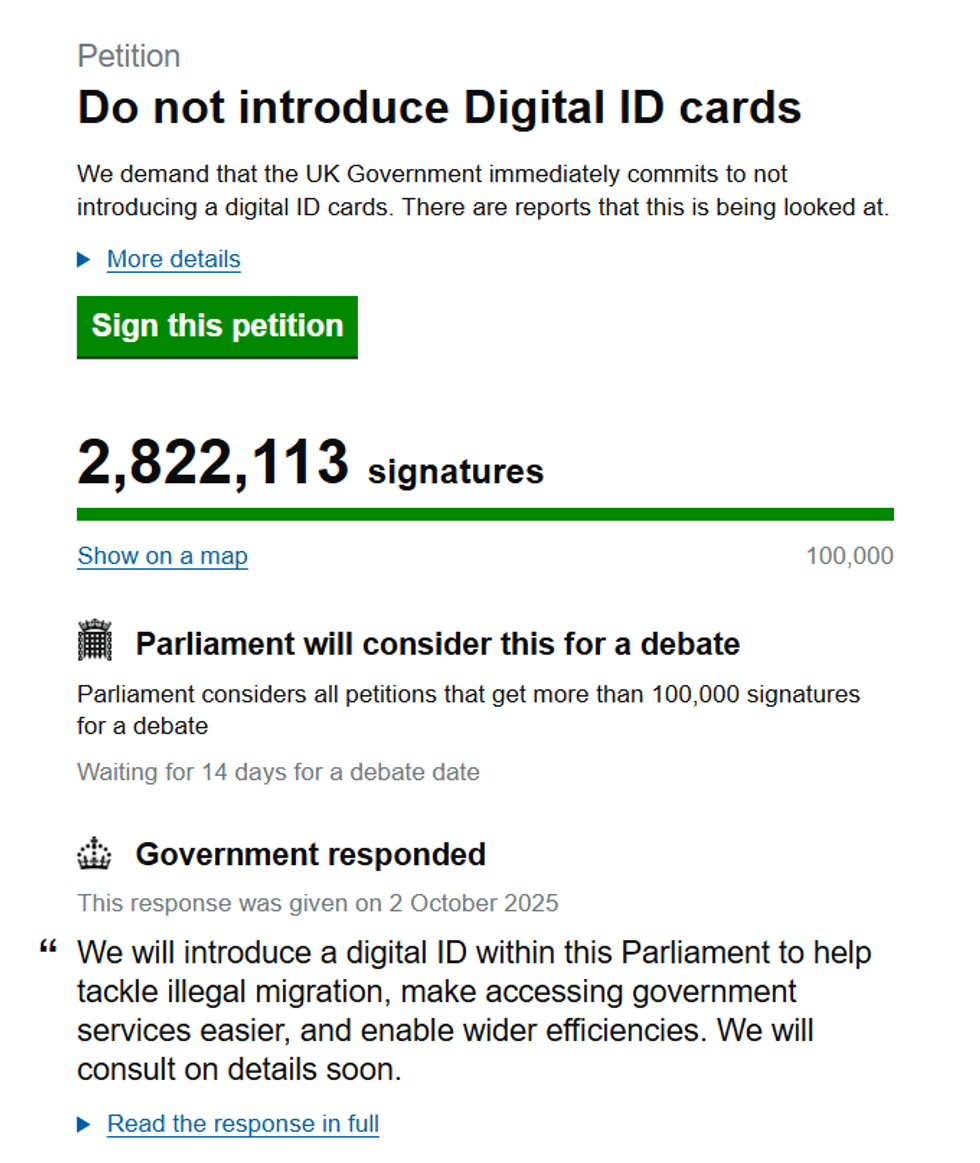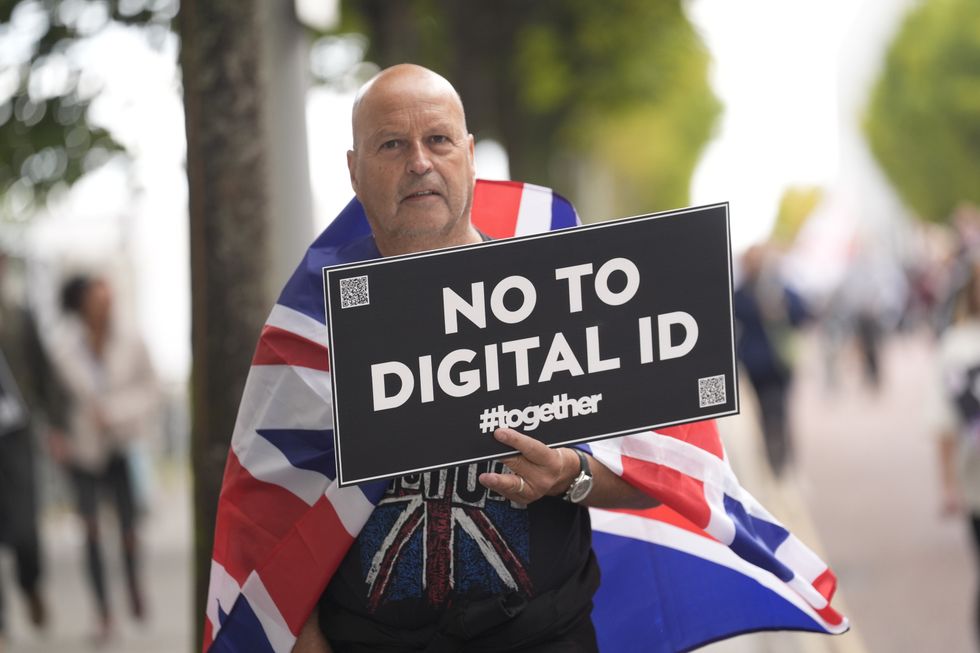Sir Keir Starmer could use 300,000 military veterans as a “case study” before rolling out digital ID, a Labour Minister has admitted.
Digital Government Minister Ian Murray claimed that the rollout of digital cards for veterans could demonstrate to the public how the credentials work and put to bed some of their fears.
Mr Murray said: “(It’s) probably a demonstration to the public by default, in that sense, on the basis that this is the first use case for having a digital credential on your smartphone, and that digital credential is the first sort of verifiable one that Government have now launched.
“So, using a closed group like the 300,000 veterans is a really good case study to show that it does work.
“And it will be very beneficial, it shows the technology works, that shows that we can prove and dispense with some of those legitimate concerns around privacy and security and those kinds of issues.”
However, Mr Murray argued that the primary purpose of the veteran card is not to be a test run for digital ID.
The Edinburgh South MP added: “The launch of this card is about making the lives of veterans easier, to access government services and the benefits of that card, rather than being about demonstrating the much wider issues that you talk about… in terms of digital ID.”
The digital veteran card, which is being launched today, remains optional.

It aims to give those who have served in the military a quicker way to prove their status.
Ministers believe that accelerating the process will provide better access to the services they are entitled to.
However, by using digital veteran cards as a potential “case study”, Sir Keir’s Government also hopes to alleviate public concerns over the plans to bring in mandatory IDs.
The Prime Minister was met with fury after proposing mandatory digital IDs last month.

Concerns about the potential infringements on civil liberties and data protection prompted more than 2.8 million Britons to sign a petition opposing the proposal.
Reform UK and the Liberal Democrats quickly came out against the proposal, with the Tories warning that digital ID would not solve the Channel crossing crisis.
Labour is now hoping to win over sceptical Labour MPs to back Sir Keir’s digital ID scheme, asking for ideas about how it could improve public services.
Sir Keir stressed that digital ID was essential to the UK clamping down on illegal migrants entering the black economy.

Labour MPs have been particularly spooked by the drastic shift in support for digital ID.
Before the Prime Minister’s announcement, net support for digital ID stood at 35 per cent.
However, it drastically dropped to -14 per cent shortly after Sir Keir’s flagship announcement, polling by More in Common has revealed.
Luke Tryl, the executive director for More in Common, said: “Digital ID is not unpopular in principle. Earlier this summer, we found a majority support the policy.

“Yet in perhaps the clearest sign of the Government’s low standing it now seems to be suffering from a reverse Midas touch: once the Government announced the plans, support dropped.
“If the Government is to rebuild support for digital ID it will have to start with making a clearer use case.
“The risk is that, in the face of organised opposition, a policy that had the potential to be popular now becomes another millstone for the Government.”
Meanwhile, Peter Hyman, a former adviser to Sir Keir and Tony Blair, told a Labour Party Conference event that the digital ID plan would be “dead in the water” within six months because the Government failed to make a convincing case in favour.
Our Standards:
The GB News Editorial Charter







Follow